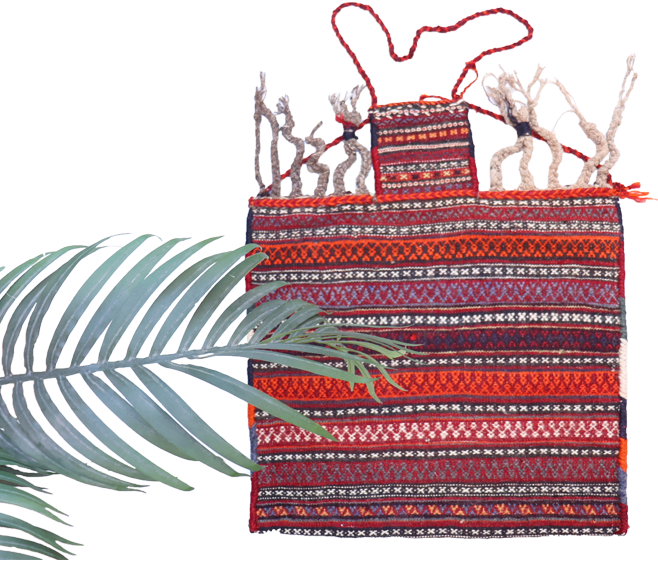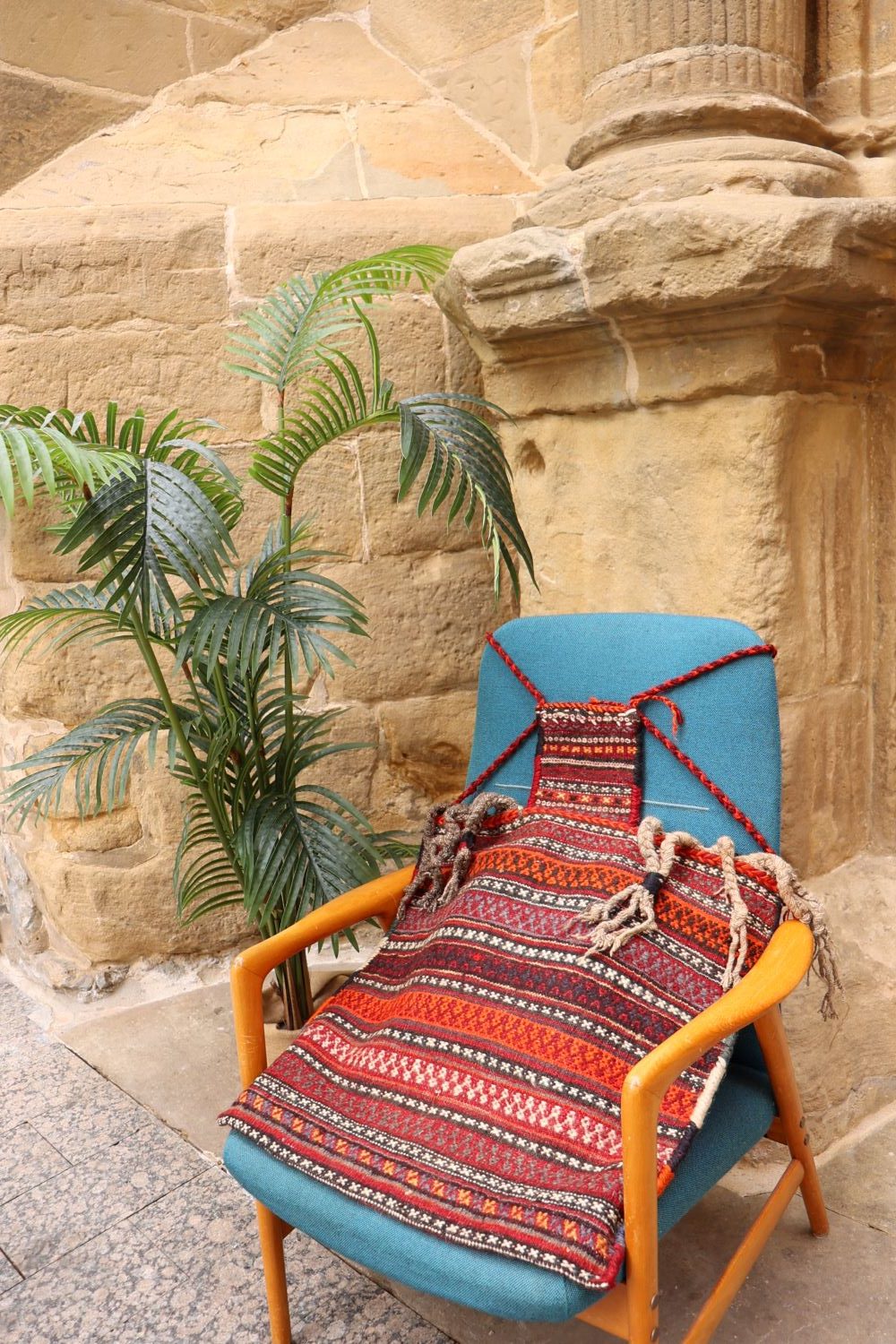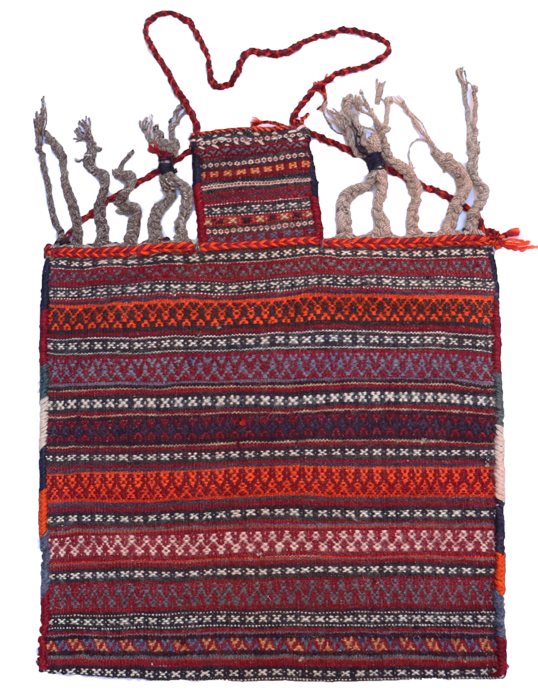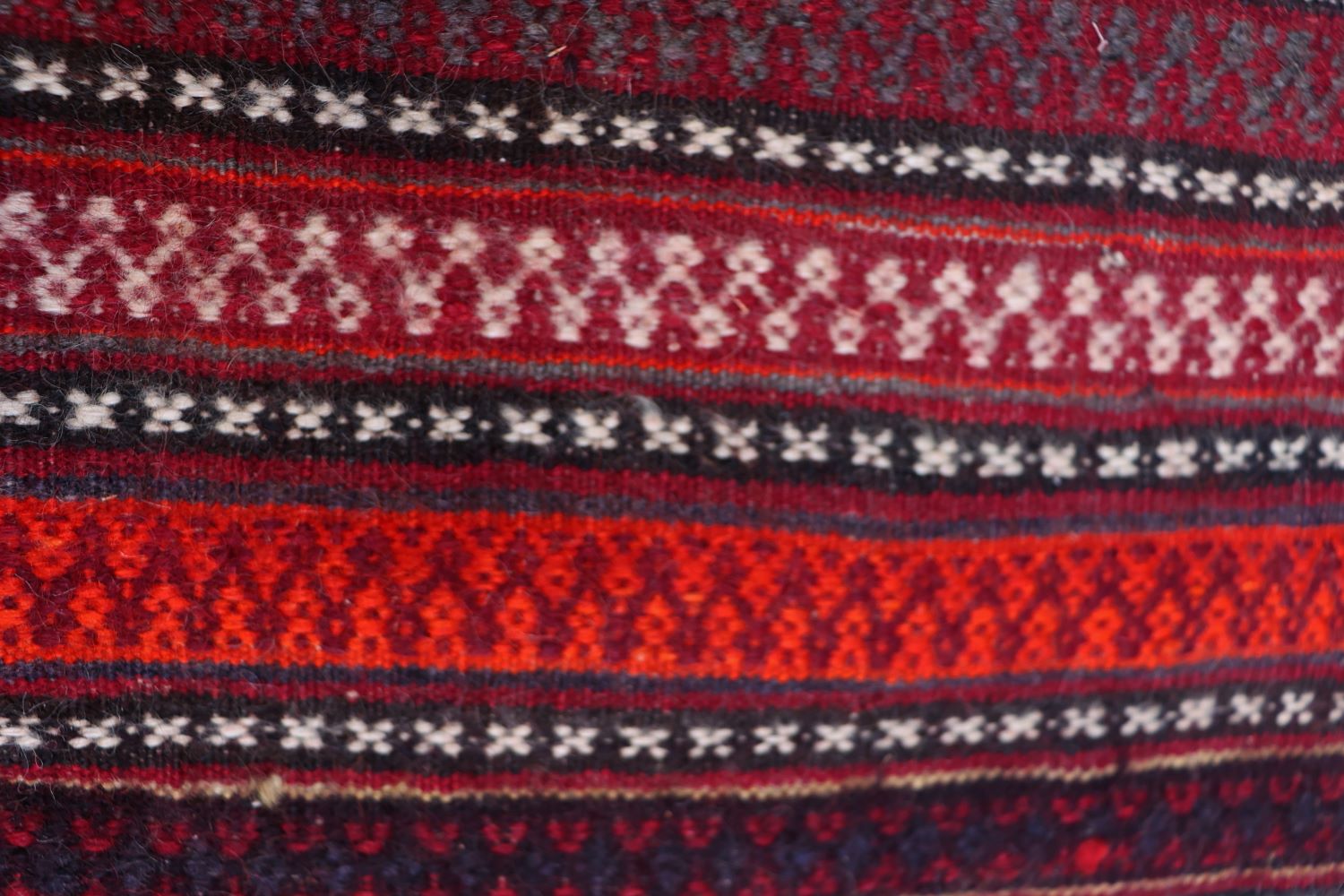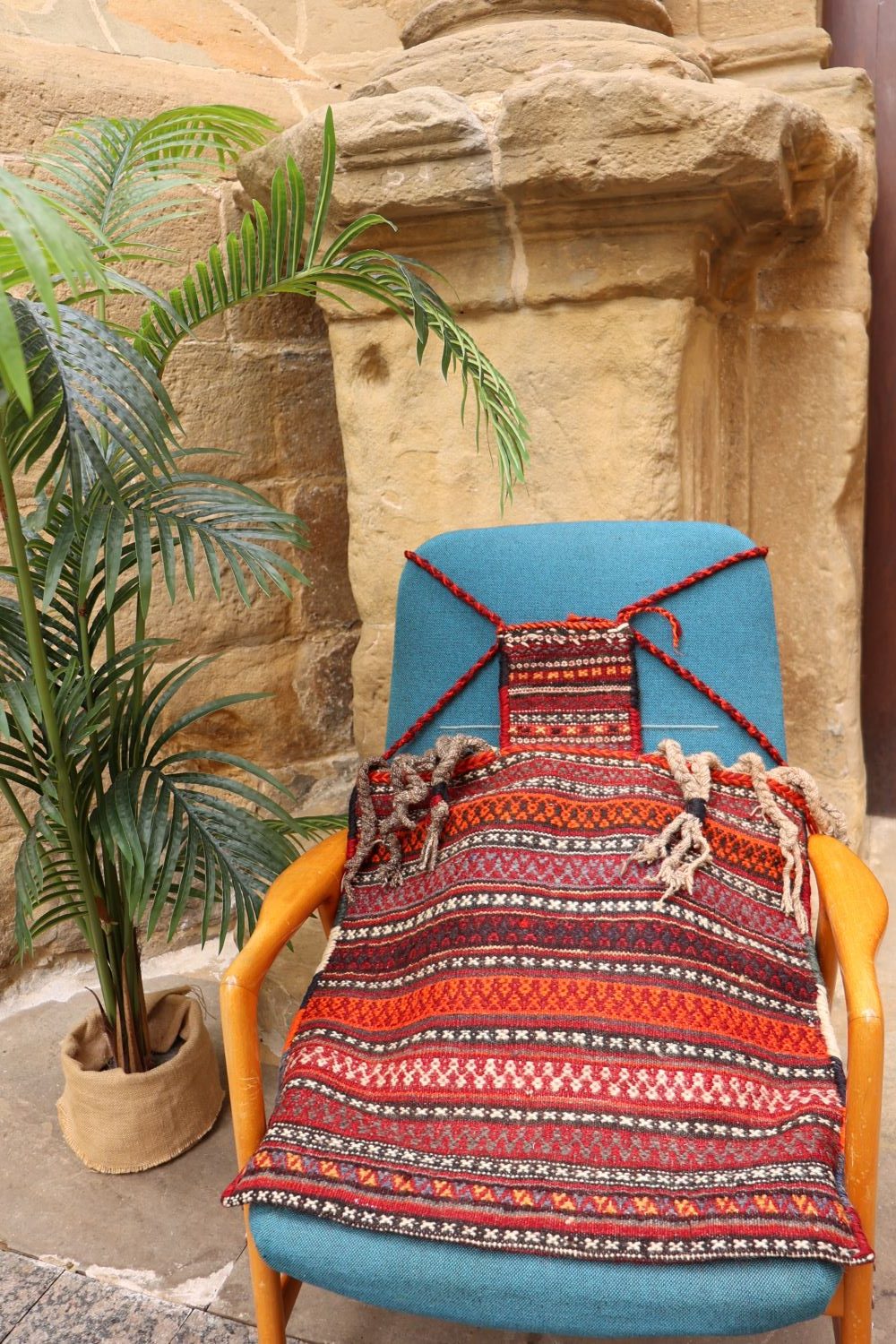150.00 €
Huge vintage salt bag woven by a Qashqai woman. The front is woven in a banded design and the back has been left plain and decorated with small coloured details.
Material: 100% hand-spun sheep wool
Size: 58×60 cms
Origin: Qashqai tribe, Iran
Date of weaving: 1970s
Namakdan is a container for preserving and carrying salt. This container is mostly wover for shepherds to carry the salt needed for the flocks they take to mountains and plains. The shepher carries on his back the salt container full of salt, and occasionally pours a handful on a rock so that his flock can lick it.
In addition, the namakdan has its household uses. Most tribes store their salt in this bags andn hang the inside the tent near the cooking space. A namakdan, has always the same shape, that is, it consists of a main body and a neck.
A namakdan is an item made for a specific person, a child or some loved one travelling far over the hill and valleys. The namakdan thus acts as a token of a woman´s love, and carries, as it were, part of this love for the shepher´s lonely hours.
Turkic-speaking pastoral nomadic tribal groups began entering central and southern Iran during the eleventh and twelfth centuries.The Qashqai, as a large tribal unit, dates back at least to the early eighteenth century, when some Turkish(Turki)-speaking tribal groups in the region existed under the name Qashqai.
1 in stock
Additional information
| Weight | 2 kg |
|---|
Subscribe and receive the lastest news
